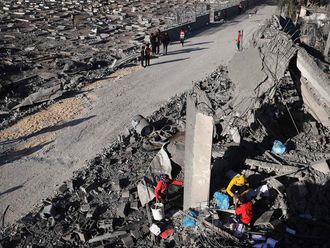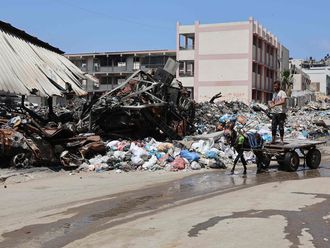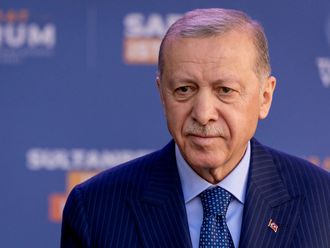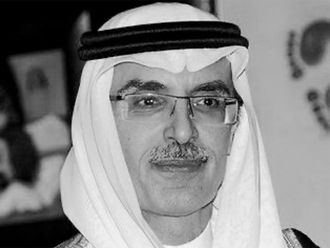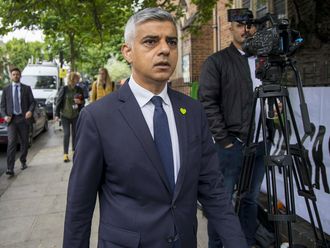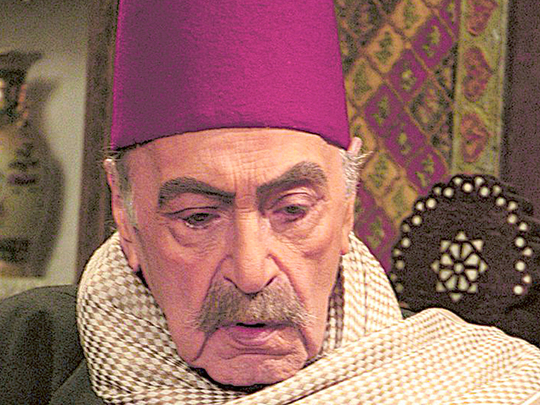
Beirut: Iconic Syrian actor Rafik Sibaii, better known throughout the Arab World by the stage name of “Abu Sayyah,” died in Damascus on Thursday at the age of 86.
With a prolific artistic career that started in the mid-1950s and continued non-stop until 2017, Sibaii became a legend during his own lifetime, often dubbed “artiste of the people.”
Once famed for his good looks and flamboyant roles Sibaii used to also sing and dance on the Damascus stage, performing alongside comedy giant Duraid Lahham in black & white classics of the 1960s.
Old age was good to Rafik Sibaii; he smoothly made the transition from slapstick comedy, lusty romances, and action-filled thrillers, unlike many actors who suffer psychological and professional trauma with the advancing of their years. He easily shifted into more serious family roles as grandfather or community elder. In 2011, he played the role of “Totah,” an aging Jewish shoemaker in Ottoman Damascus during World War I.
Sibaii was born in the Bzurieh Market of Old Damascus and dropped out of school to become an actor, changing his family name to avoid embarrassing his conservative family, which regarded a career in the arts as un-Orthodox.
He trained with pioneer Syrian comedian Abdul Latif Fathi, playing the lute and performed folkloric songs in traditional Damascene dialect, then joined the Jerusalem-based Far East Radio in 1955, run by the British colonial government, becoming a radio actor. He worked on a programme with Tawfiq Ishaq, a Lebanese Jew, giving birth to the character of “Abu Sayyah,” a role that lived with him for the next 60-years.
“Abu Sayyah” was an illiterate strongman from the old alleys of Damascus, known in Arabic as “qabaday.” He was kindhearted and simple, who people turned to for protection and help; a stereotype character who Sibaii had often met as a child on the streets of Damascus—now made universally famous through the mass popularity Syrian TV show, “Bab Al Hara.”
When the Suez War erupted in 1956, Sibaii returned to Damascus, and briefly worked at the newly established Central Bank of Syria by day and as a stage actor by night. In 1960 he teamed up with prominent comedian Nihad Qali (known by his acting name Husni Al Bourazan), staging Fyodor Dostoyevsky’s The Brothers Karamazov, also adapting a play by Oscar Wilde for the Syrian stage.
He was one of the founders of Syrian Television in the summer of 1960, where at the urging of its first director Sabah Qabbani, Sibaii teamed up with Nihad Qali and Duraid Lahham, a chemistry teacher turned comedian, creating a trio that became famous throughout the Arab world. The role of “Abu Sayyah” earned Sibaii frequent audiences at the presidential palace in Damascus, where he was often received by every president from Nazem Al Qudsi in 1961 to Bashar Al Assad, who decorated him with the Medal of Honour of the Syrian Republic, Excellence Class, in 2008.
In 1964, Lahham, Qali, and Sibaii performed a classic comedy series called Maqaleb Ghawwar (The Pranks of Ghawwar) about the mischief of a streetwise clown named “Ghawwar Al Tosheh,” a popular character played by Duraid Lahham. It was an overnight hit, followed by the immensely popular, “Hammam Al Hana” in 1968. After the Arab-Israeli War of 1967, the trio staged a political satire called Mashrah Al Shawk (Theatre of Thorns), mocking Arab performance in the 1967 and the inefficiency of Arab dictatorships.
Rafik Sibaii co-starred with Lebanese diva Fairuz in the 1964 musical The Ring Seller, and in 1968, with Lahham and Egyptian screen legends Farid Shawki and Nabila Obaid in The Three Crooks. He returned to popular television soap operas in 1992 with the classic work, “Ayyam Shamiya” a drama set in Ottoman Damascus, made by the director of the “Bab Al Hara” series, Bassam Al Malla, set in similar genre, and starred with him once again in 2004 classic, Layali Al Salhieh.
His son Saif Al Din went into an acting career as well, starting with the popular comedies of Syrian actor Yasser Al Azma, then moved to directing and was behind the UAE-filmed soap opera “Al Ukhwa” in 2014.


